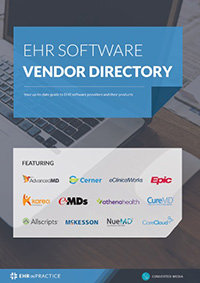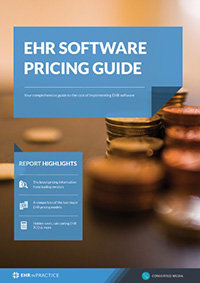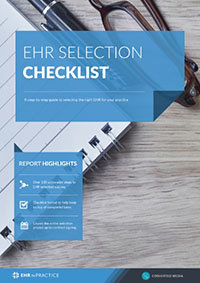How can EHR refine your practice's processes
One of the primary motivations for the government’s efforts to encourage the adoption of EHR rested on improving the quality of health care and facilitating the delivery of care in a more efficient manner. The extent to which EHR adoption has achieved these goals is up for debate. However, fundamentally one can say that EHR can play a vital role in improving a health care organization’s operational efficiency. For example, one study examined the relationship between EHR adoption and improvements in three hospital outcomes: process adherence, patient satisfaction, and overall efficiency. Findings from this study suggested there was a robust and positive relationship between EHR adoption and performance across these areas.
However, EHR use does not guarantee gains in operational efficiency, per se. EHR-related improvements in efficiency depend on using an EHR that possesses features that complement an organization’s strategic and operational goals. Further, the EHR must be used in a manner that positions an organization to achieve gains in efficiency.
The ways in which EHRs can improve operational efficiency can be categorized into two broad areas: administrative and clinical improvements. EHR-related improvements in the efficiency in which administrative and clinical processes are driven by better data accessibility and management fostered by EHR use. With an enhanced ability to access, share and make informed decisions based on data collected and stored on an EHR, practices can position themselves for efficiency gains.
More efficient care delivery
A study published in Health Services Research found most physicians with EHRs reported EHR use enhanced patient care overall (78 percent). The factors the study’s authors noted could underlie improvements in patient care centered on the improved ability to access a patient’s chart remotely, alerts related to potential medication errors, and critical lab values.
Time savings and more efficient coding
A Health Affairs study examining the extent to which EHR use improved overall administrative and financial performance noted that among the practices participating in the study, the cohort experienced increased performance across a number of financial metrics. These benefits arose primarily from efficiency gains and increases in revenue, which originated from more accurate and higher-level coding coupled with time savings attributed to the EHR. Increased coding levels handled an estimated $16,929 per FTE provider per year whereas efficiency-related savings and increases in revenue returns were estimated at $15,808 per FTE provider per year.
More effective operational planning and correction
EHR use not only offers benefits in the delivery of care and management of an organization’s finances it can also enhance the ability of administrators in strategic planning and the correction of problems. Given that an EHR, when coupled with practice management capabilities, can offer the ability to take a holistic view of how a practice is working given the practice data is readily available in electronic format. In a paper-based setting, data that could supply insight to planners and managers is difficult to obtain and analyze thus depriving an organization of valuable insight.
The greater level of efficiency that an organization can potentially gain from using an EHR is significant. However, these gains are contingent on a well-planned and executed EHR strategy.
Free white paper

How to sell your EHR project to senior management
Your comprehensive guide to securing funding and approval for your EHR project





